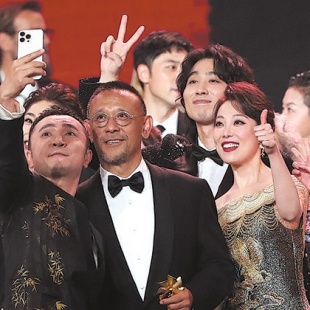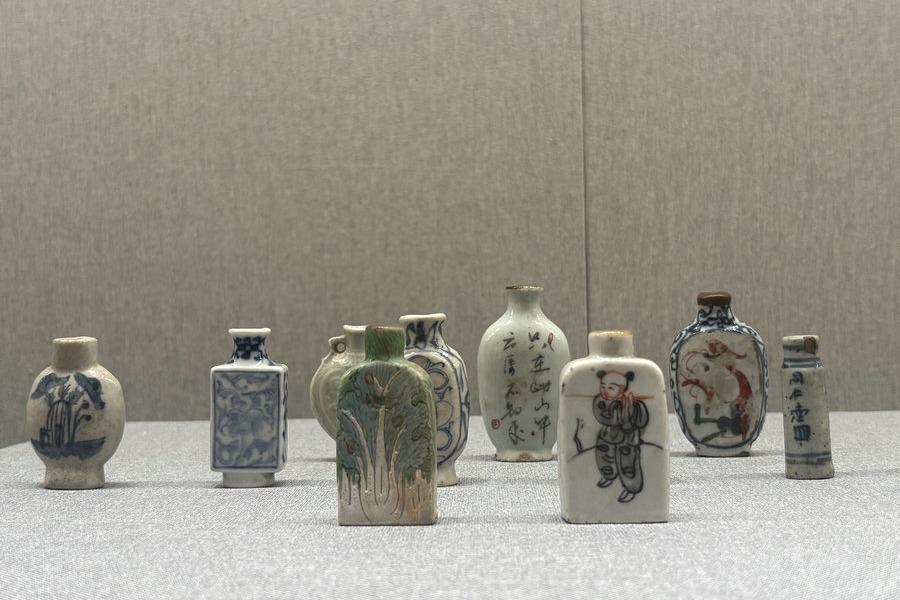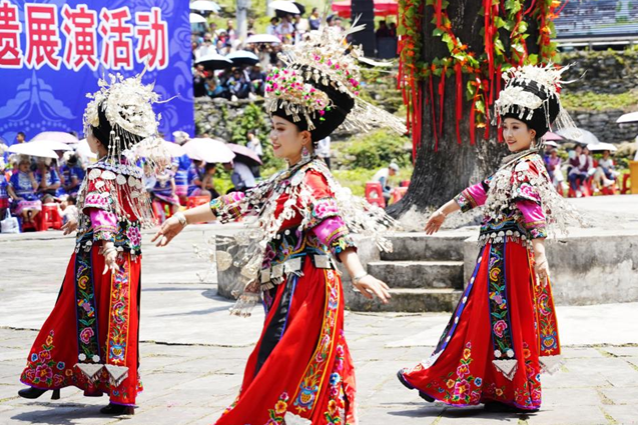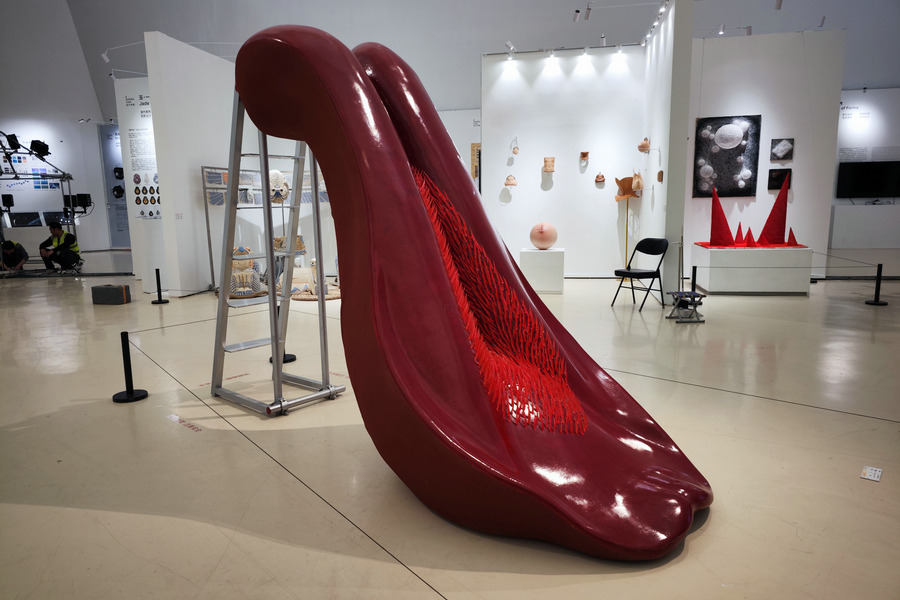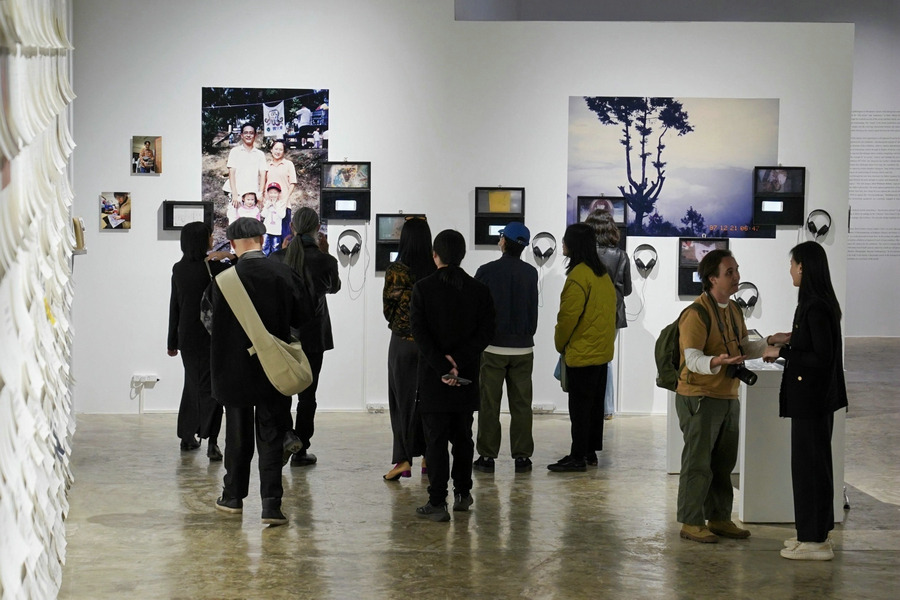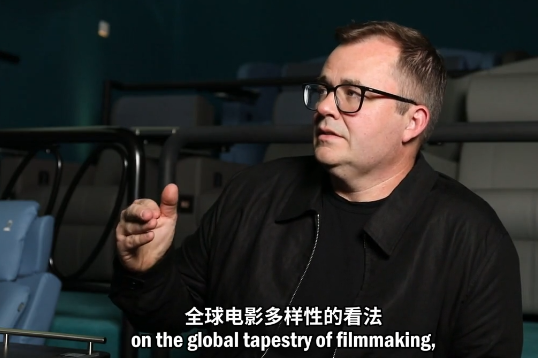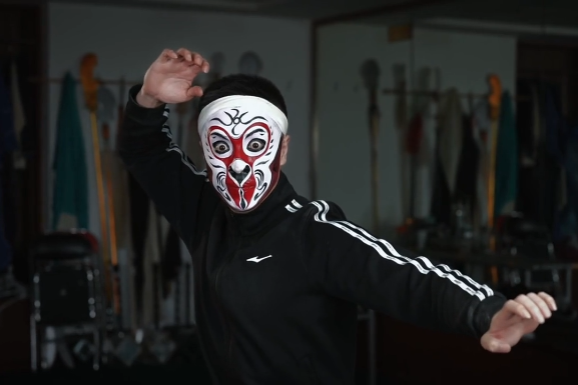Film veterans put success in focus at Beijing festival
Directors, industry leaders and actors share experiences, memories and predictions in masterclasses, Xu Fan reports.

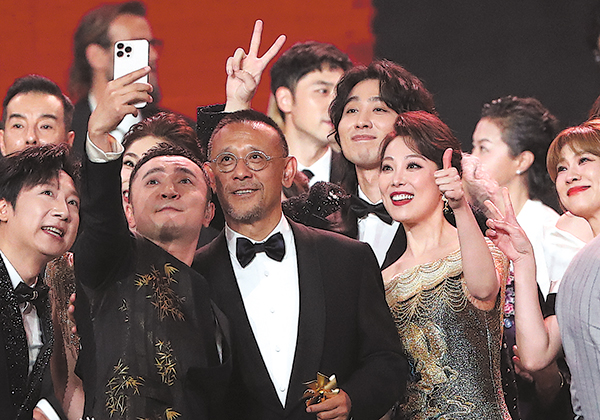
Telling backstories
Shining stars, prestigious filmmakers, and rarely screened films are the elements that define a film festival. At the Beijing event, three masterclasses stand out — hosted by actor-director Jiang Wen, auteur Jia Zhangke, and French actress Isabelle Huppert — offering cinephiles a window into the lesser-known stories behind their iconic works.
Known for his bold visuals and dark humor, Jiang has directed six films, five of which — including Hidden Man — are adaptations of novels. What has caught the attention of some critics is how drastically these adaptations differ from the original stories.
"What I brought to the screen is what I envisioned in the novels. When I read a novel, many images come to mind that are often different from the original tale. But the novels are still important because they stimulate my imagination," Jiang explains.
Speaking about Hidden Man, an adaptation of Zhang Beihai's Xia Yin (The Reclusive Hero), Jiang recalls how the novel reminded him of old Beijing landscapes. These memories trace back to his childhood when, at age 10, he moved with his parents into a residential compound that once belonged to a Qing Dynasty (1644-1911) princess.
Jiang emphasizes that the most important reason for a young filmmaker to begin a filmmaking career is the capability to express an independent perspective; everything else, including technical skills, comes later.
Interestingly, Jiang reveals that by the time he finishes writing a script, he already has the entire film visualized. "I don't need to refer to the script while shooting. I remember every line, whether mine or another character's," he shares, offering a glimpse into his unique filmmaking process.
Director Jia Zhangke, winner of multiple prestigious international awards including the Golden Lion at the 63rd International Venice Film Festival, also shares insights into his filmmaking journey during his masterclass.
This year marks the 10th anniversary of Mountains May Depart, which won Best Screenwriter at the 10th Asian Film Awards. For the first time, Jia unveils one of his motivations behind the film.
"There's a scene in the movie where Zhao Tao's character tries to transport her father's body back to their hometown after his sudden passing. That storyline came from my own life: My father died in another city and my older sister and I had to take him home in an ambulance. The trip took nine hours," he recalls.
"It was the hardest moment of my life. But when I was filming it, that pain was buried deep in my heart. This huge emotional force kept me going and drove me to finish the film," he adds.
French actress Huppert, 72, recalls collaborating with South Korean director Hong Sang-soo on films like In Another Country, Claire's Camera, and A Traveler's Needs. "Hong is a special director. His signature style involves shooting films in extremely short periods but investing heavily in preparation," Huppert recalls, using Claire's Camera as an example, which took only six days to shoot. In Another Country was filmed over nine days.


